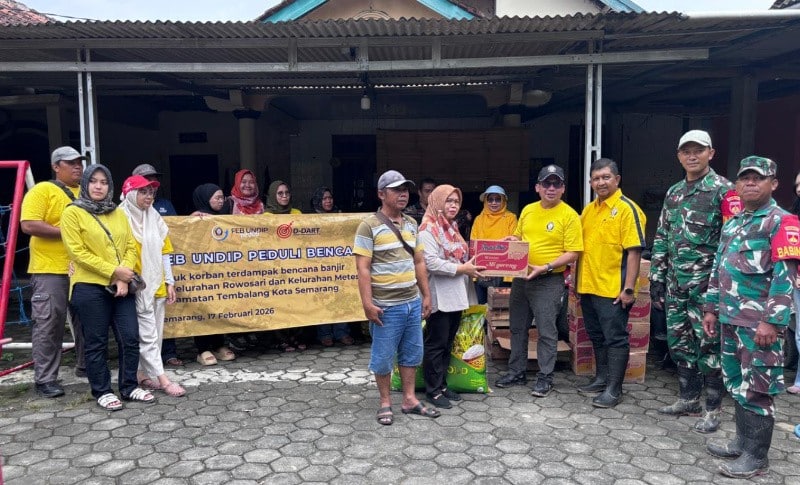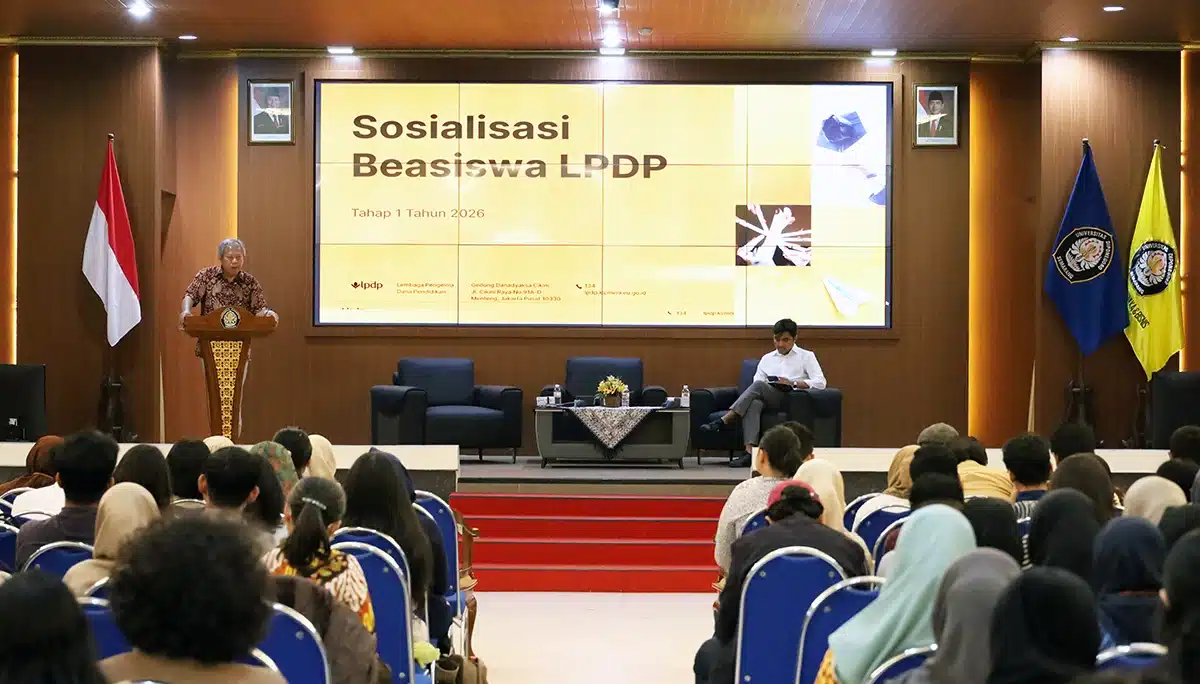Semarang – The Indonesian government is giving special attention to sustainable mangrove ecosystem management and restoration. In the National Medium-Term Development Plan (RPJMN) 2020–2024, mangrove rehabilitation has been included as one of the national priority programs.
The Head of the Badan Restorasi Gambut dan Mangrove (BRGM) / Indonesian Peatland and Mangrove Restoration Agency, Ir. Hartono, M.Sc., conveyed that the implementation and achievement of accelerated mangrove rehabilitation targets are divided into two primary directives. First, mangrove rehabilitation through planting is targeted at damaged mangrove areas (deforested and degraded) covering 200,000 hectares. Second, mangrove rehabilitation involves addressing the factors causing damage, targeting well-preserved but threatened mangrove areas covering 400,000 hectares.
BRGM Secretary Dr. Ir. Ayu Dewi Utari, M.Si., highlighted that Mangrove Landscape Units (Kesatuan Landscape Mangrove / KLM) play a fundamental role in planning, serving as the operational embodiment of the landscape-based mangrove ecosystem management concept. The KLM framework will divide functions into protective and cultivation purposes, acting as the sustainability analysis and management unit for mangrove ecosystem conservation.
To achieve these targets, BRGM is collaborating with Universitas Diponegoro (UNDIP) through the Mangroves for Coastal Resilience (M4CR) project, aimed at assessing and mapping mangrove ecosystems and determining their functions within the KLM framework in Riau Province. According to UNDIP team leader Prof. Dr. Denny Nugroho Sugianto, S.T., M.Si., from the Faculty of Fisheries and Marine Sciences, the partnership will result in the development of technical procedures for assessing and mapping mangrove ecosystems and their functions to enhance their protection and management.
This initiative was supported by BRGM’s Planning Working Group Head, Agung Rusdiyatmoko, and Mangrove Rehabilitation Planning Sub-Working Group Head, Mayasih Wigati, S.Sos., M.Si., M.Sc., who provided technical guidance during recent discussions.
Together with BRGM, the Ministry of Environment and Forestry (KLHK), other ministries/agencies, local government institutions in Riau, academics from UNDIP, Universitas Riau, and Universitas Lancang Kuning, as well as stakeholders, the UNDIP team has conducted several Focus Group Discussions (FGDs) in both Pekanbaru (Riau) and Semarang (Jawa Tengah). These discussions gathered inputs for developing the KLM framework in Riau Province.
During the FGD held in Pekanbaru on October 29, 2024, Dr. M. Saparis Soedarjanto, Director of Watershed Management Planning and Monitoring at KLHK, explained that KLM serves as the unit for mangrove ecosystem protection and management within a specific watershed or sub-watershed, shaped by interactions between land and sea that create suitable habitats for mangroves and influence social-economic systems.
Meanwhile, the KLHK Director of Freshwater and Mangrove Rehabilitation, Inge Retnowati, emphasized that the M4CR program under the KLM context is a vital effort to restore high-value mangrove ecosystems, particularly for coastal communities. “The M4CR program adopts a comprehensive ‘landscape approach,’ integrating biophysical interventions with social-economic support for communities through planning, utilization, control, maintenance, supervision, and law enforcement,” she said during the FGD in Semarang on November 22, 2024.
The discussions led by Prof. Denny and experts from UNDIP, including Dr. Muhammad Helmi, S.Si., M.Si.; Prof. Bulan Prabawani, Ph.D.; Prof. Dr. Ir. Muhammad Zainuri, D.E.A.; Prof. Dr. Diana Nur Afifah, S.T.P., M.Si.; Dessy Ariyanti, Ph.D.; Prof. Dr. Ir. Sri Puryono KS, M.P.; Dr. Ir. Retno Hartati, M.Sc.; Prof. Dr. Ir. Ambariyanto, M.Sc.; Drs. Rudhi Pribadi, Ph.D., and others concluded that mangroves are essential for ecological balance, climate resilience, and the social-economic sustainability of coastal communities. Mangrove preservation and rehabilitation are crucial to maintaining their ecological, economic, social, and cultural benefits, including their significant carbon sequestration potential, which is a key asset in combating global warming.
Prof. Denny also noted that this collaboration aligns with UNDIP’s Tropical and Coastal Region Eco-Development scientific focus and supports the implementation of Sustainable Development Goals (SDGs) 13 (climate action), 14 (life below water), and 15 (life on land).










